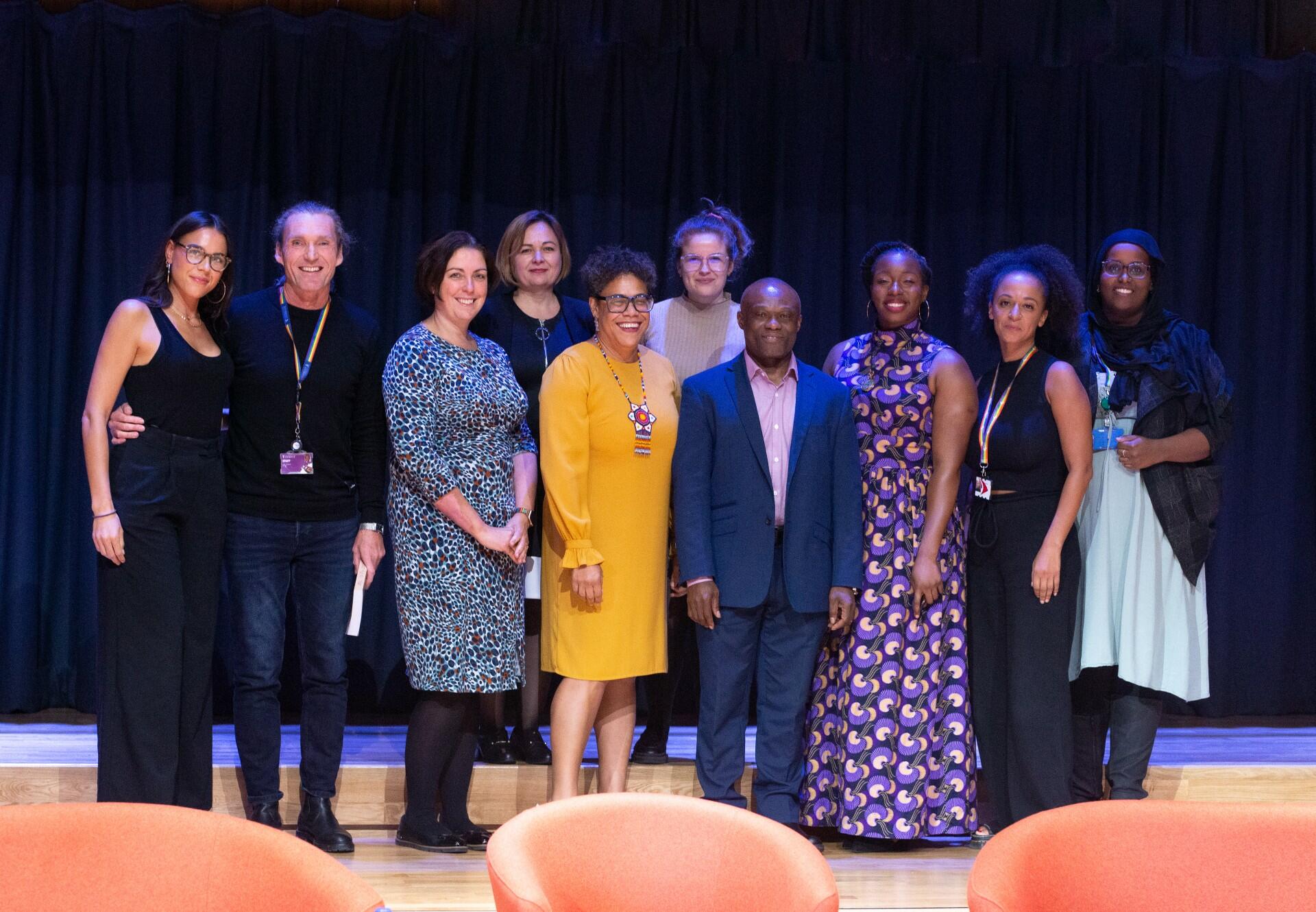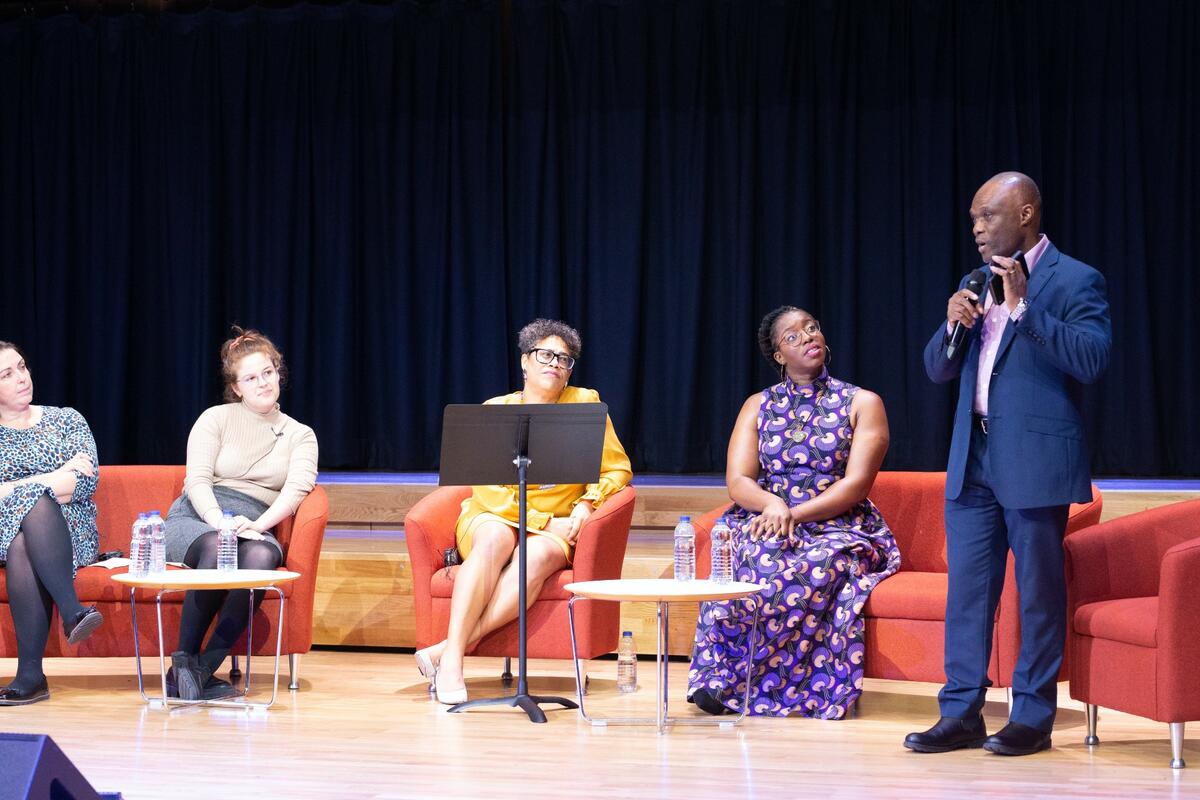
Liverpool School of Tropical Medicine co-hosted a unique event merging arts and science for Black History Month, building on previous successful collaborations on the ‘Black Science Bootcamp’ and the recent panel discussion, ‘Understanding Colonial Legacies and Exploring Restorative Action’.
In partnership with University of Liverpool’s Faculty of Health and Life Sciences at Tung Auditorium, the event ‘Bioethics of Being Black in Science and Medicine’ featured acting and musical performances followed by a panel discussion of experts from LSTM, University of Liverpool and Liverpool Women’s Hospital.
The event featured a performance from a traditional African band from the Democratic Republic of Congo - Yok'elengi, led by Felix Ngindu, and attendees then watched a moving performance from award-nominated actor Aminita Francis, who starred in the play ‘Family Tree’ as Henrietta Lacks – a Black American woman whose cells were taken without her consent in the 1950s, that have since been used in significant scientific breakthroughs.
That led to a panel discussion, involving two experts from LSTM, on the ethical issues that Lacks’ story presents, as well as other examples of racial discrimination and abuse within scientific fields. Discussions also looked at the lasting disparities in health outcomes, and underrepresentation in STEM fields, highlighting the urgent need for equity and reform in the scientific community.

The panel included Dr Uzochukwu Egere, Senior Research Associate, International Public Health, at LSTM and Professor Charles Ameh, Professor of Global Health.
Dr Egere spoke about the impact of racial bias in global population health and transitioning from ‘tropical medicine’ to ‘global health’. Dr Egere discussed the importance of a mindset change in global health about ‘who is the expert’ and equitable engagement with local partners.
Professor Ameh discussed the importance of investment to capacity build, and ensuring talent retention, as well as the value of mentoring and support for Black talent through to senior leadership level in academia, referring to sector data showing underrepresentation of Black academics from postgraduate level and above, particularly at a Professoriate level.
Positive Action was discussed as a mechanism to increase Black representation within the academy, the importance of diverse recruitment panels but equally the importance of culture to ensure staff retention.
Professor Ameh said: “To address the attrition of scientists/researchers from ethnic minority backgrounds, as they progress from undergraduate to postgraduate, early/mid and senior academic career levels, UK HEIs have to invest downstream. This will ensure that we retain scientists and have enough Professors to mentor the next generation of scientists/researchers from ethnic minority backgrounds.”
Lucy Tomlinson, Race Equity Project Manager at LSTM, said: “Our event engaged the Liverpool community in an honest discourse regarding health inequalities and overcoming barriers to engaging in STEM for Black people. The evening further augmented our collaborative efforts with the University of Liverpool towards achieving race equity within our respective institutions. 142 people were in attendance, raising £380 for charity, and feedback has been extremely positive.”
Profits from the event were donated to two local charities, Mary Seacole House, a multicultural mental health resource service for adults primarily from BAME communities in Liverpool, and Generating Genius, which has been working for over 15 years to ensure that talented and able students from disadvantaged backgrounds are positioned to excel in STEM careers.